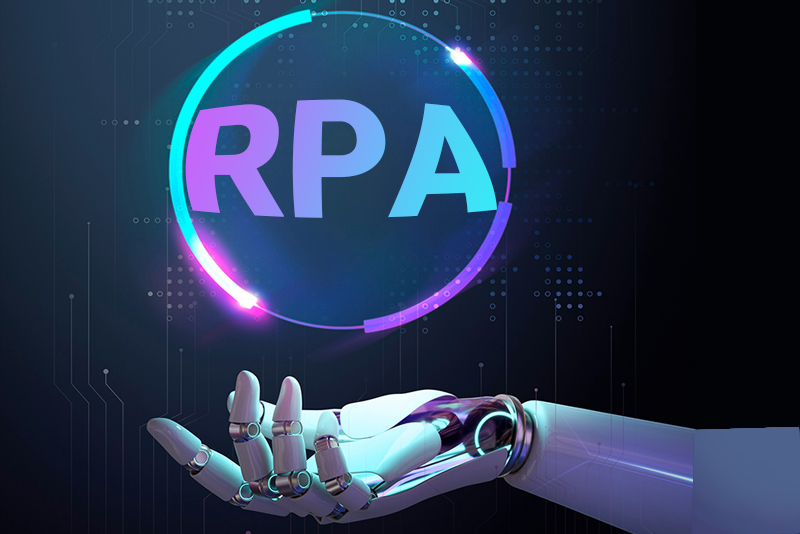The growth of several technological advancements across the world has resulted in significant changes in all industries and their business processes. The healthcare industry is no exception in this case. In the present scenario, the healthcare industry is overburdened by incredibly high costs, high volume and stringent regulations that can possibly challenge the quality and urgency of patient care. With changing needs of modern patients, healthcare providers need to perform more actions with fewer resources. As the healthcare industry often involves heavy paperwork and reporting, digitizing paper files, optimizing appointment scheduling, and executing billing and claims processing can be a time-consuming task. These manual and onerous tasks can lead to reduced focus on patients and patient experience. With an objective to improve business processes and enhance the patient experience, healthcare providers are embracing digital transformation. Robotic process automation (RPA) in healthcare is one such unique technology that helps automate business processes and provide enhanced efficiency and growth – all while focusing on improved patient care.
Benefits of Robotic Process Automation in the Healthcare Industry
Robotic Process Automation (RPA) refers to technological solutions relating to business process automation using software bots or artificial intelligence workers. The technology uses software to mimic the back-office tasks of human workers, such as extracting data, filling in forms and moving files. As healthcare organizations operate in real-time, cumbersome and error-prone environments, data processing tasks slow down the processes and affect everything – right from cost structures to compliance to the patient experience. In fact, reports suggest that the health sector faces the highest cost per capita from data breaches. At an average of $408 per record, the cost of healthcare data breaches is at least double that of other industry sectors. The high cost of data breaches is primarily due to the high notification costs and steep penalties in the United States for healthcare information mismanagement.
There are several benefits of robotic process automation in the healthcare industry. With less time spent on manual managerial, back-office and patient-facing processes, healthcare staff can focus more on providing better care and staying HIPAA-compliant, while reducing costs.
Here discussed are some of the common benefits of RPA in healthcare –
- Better patient support –RPA allows healthcare providers to improve their patient-facing operations and provide better and enhanced care in accordance with each patient’s unique needs.
- Reduced Costs – With robots handling many arduous and time-consuming data handling tasks, employees can focus on more strategic data tasks. In short, with RPA, healthcare providers can leverage a cost-effective workforce and thereby reduce costs in the long run.
- Improved HIPAA and Data Compliance – As healthcare providers rely on several applications to store patient data, ensuring the confidentiality of data is a complex task. RPA technology makes HIPAA compliance easier. One of the key benefits of RPA is role-based access. By using role-based access, RPA bots allow healthcare providers to control data access and ensure that only the right people are accessing private information. This is particularly important as physicians, IT staff or claims departments all need varying levels of data access.
- Reduced Repetitive Work – With RPA technology, healthcare staff can focus on delivering care rather than entering data. For instance, nurses spend a considerable amount of time monitoring email inboxes or entering information in multiple applications. With RPA, the bots can take over repetitive human tasks. In that way, nurses can focus more on patient care and less on data entry tasks.
Top RPA Use Cases in the Healthcare Industry
Healthcare business processes include many manual and repetitive tasks that can be time-consuming and do not require any specialized knowledge. RPA can provide task automation across the organization, right from front-office tasks to operational processes to patient interaction and bill payment. There are many manual patient-facing and back-office processes that can be automated. Here are some top RPA in healthcare use cases –
- Patient Appointment Scheduling – RPA implementation in healthcare can help improve inefficiencies around scheduling appointments. As patients tend to schedule appointments online, healthcare providers need to collect highly sensitive patient information like personal details and health insurance details in the course of appointment scheduling. Upon collecting the information, the staff has to determine which physicians are available and when to schedule appointments. This is particularly relevant when multiple appointments are scheduled every day.Physician appointments need to be aligned with physician’s schedules and availability. For instance, if a patients need to be diagnosed by an urologist, their appointment must be fixed according to the urologist’s timing. If the urologist appointment is not available, it is important to inform the patients well in advance via a phone call or email. With RPA bots, appointments can be scheduled according to diagnosis, physician availability, and other important criteria. In addition, RPA systems can scan patient data to create reports that can be sent to referral management representatives to fix the appointment.
- Patient Discharge Instructions – Patients need to correctly follow post-discharge guidelines as it helps better manage their specific health condition. Checking whether each specific patient is correctly following their post-discharge instructions can be a complex task. With RPA bots, healthcare providers can help patients follow discharge guidelines by sending reminders about collecting their prescriptions. In addition, RPA bots can notify patients about upcoming appointments.
- Claims Processing and Management – Regarded as one of the biggest hurdles in the area of hospital administration, healthcare facilities tend to face a large volume of claims and the process for handling them can involve multiple applications. RPA, by using bots and AI technology can help streamline the overly manual process of claims processing. This includes denials communication and resubmission, and revenue and cost predictions based on history.For instance, automated file transfer automates the daily transfer of individual claims files to File Transfer Protocol (FTP) servers. As and when the files are detected on the FTP server, an RPA task launches and combines the patient files. This in turn securely transfers files from the health information system to the claims management system. In addition, RPA software can automate the process of auditing to ensure no claims are overlooked.
- Managing Day to Day Workflows – Healthcare providers need to manage day-to-day processes, such as coordinating patient healthcare, staff scheduling and remote monitoring. However, these processes involve several manual tasks that can be time-consuming. RPA in healthcare management streamlines different processes, resulting in cost savings for healthcare providers. With RPA, healthcare professionals can spend more time on patient care and wellness.
- Speed up Account Settlements – RPA in healthcare services speeds up account settlements. Healthcare providers need to effectively monitor patient costs. In addition, they need to make sure that patients don’t fall behind on their payments. They also have to calculate the costs of diagnosis tests, physician fees and other facilities. Manually tracking all these costs and other payments can be time-consuming and prone to human error. RPA bots can correctly determine patient costs and keep track of payments. By leveraging RPA technology, healthcare providers can reduce delays in payments and inaccuracies associated with the calculation of the bill amount.
- Prior Insurance Authorization – RPA and AI technology are used to submit and track requests for prior insurance authorization for procedures, communicating automatically with the patient and all involved constituents, while scheduling the procedure. Insurance authorization submissions are dependent upon proper coding, and AI technology can correctly identify and resolve inconsistencies in submissions caused by manual errors. Approval of coverage for special tests or authorization for treatment is requested electronically, including the cost to the patient, deductibles and other coverage related details, and the response is communicated via auto-generated email.
Robotic process automation (RPA) adoption does not mean the end of administration jobs; rather, it will reduce the dependency on humans for routine tasks and focus more on value-based roles. By embracing robotic process automation technology, healthcare practices can improve patient experience while reducing costs and improving efficiency.
Increased automation combined with more efficient processes will make routine operations easy for hospital staff, reduce human error and create time-saving efficiencies as more time is spent on patient wellness. All these key benefits can be effectively achieved if healthcare providers try to strike a smart balance between automation and human intervention. Relying on the services of reputable business process outsourcing companies that understand the benefits and significance of incorporating smart learning technologies can help healthcare providers stay abreast with competitors.




